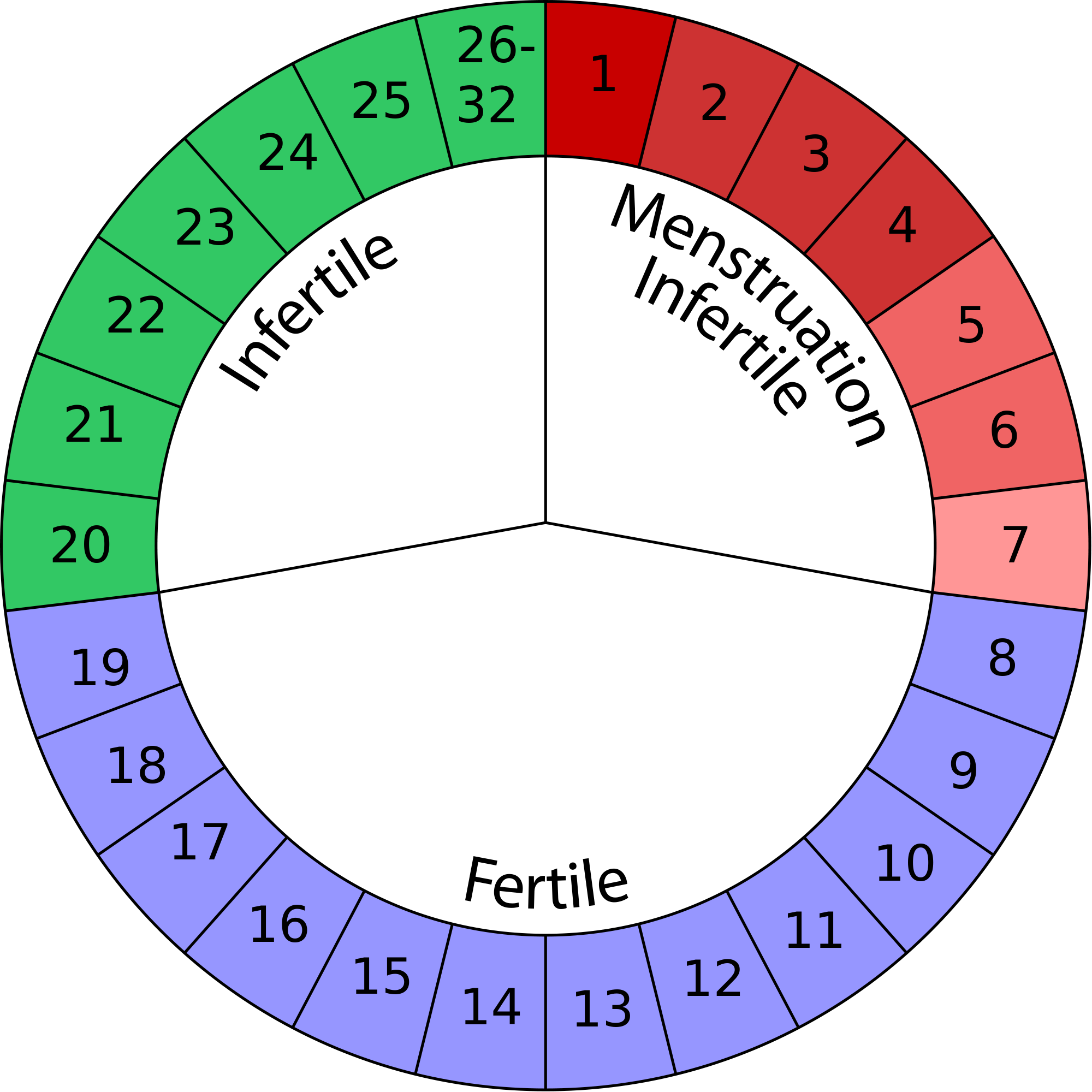
Have sex, they said. You’ll get pregnant, they said. They were wrong — sort of. Even though you can get knocked up after having unprotected sex just once (thanks for the heads up, sex ed!), timing often plays a huge part in conceiving a baby. After all, your chances of getting pregnant can largely depend on if you’re ovulating. A quick crash course on what ovulation is: It’s when an egg is released from your ovary into your fallopian tubes (it usually happens roughly around the middle of your cycle). There, it can connect with sperm — a meet-up that may result in, boom, a baby! You’re most fertile on the day you’re ovulating, and the 5 days leading up to it.
You Have a Steady Cycle
If your cycle is steady, then nailing down the day you’re ovulating is a little easier. In general, you ovulate 14 days after the first day of your period, says Carolyn Alexander, M.D., a fertility specialist at Southern California Reproductive Center in Los Angeles. If you aren’t exactly sure when your period will come crashing in, start logging it into your iCal or download a period tracker, so you have a record of your monthly patterns.
You Have Clear Discharge
Deciphering what’s coming out of your body can give you a glimpse into what’s going on inside your body. Specifically, discharge can be a clue into your fertility. Anything that is clear and slippery is a sign that you’re ovulating, Alexander says. Not sure what to compare it to? Discharge that isn’t associated with ovulation tends to be thicker.
You Wanna Get It On, Like, Now
Suddenly in the mood to have sex all the time all the time? An uptick in libido can definitely be an indicator that you’re ovulating, Alexander says. You could peg it to the fact that your partner is just so damn hot. But aside from that, during ovulation, your body starts producing more estrogen to prepare for a potential pregnancy — and feeling super sexy is a nice side effect of the increased levels of the hormone.
You Have ~Different~ Cramps
Another clue: experiencing one-sided, lower abdominal pain. These aches are not the same as your typical period problems, and even have a special name: middleschmertz, Alexander says (it’s German for middle pain). It’s when you can feel your ovary actually releasing the egg, which means — bingo — you’re ovulating! Sometimes it can also be accompanied with light spotting.
You’ve Got Boob Pain
If your breasts are especially tender or achy, and your period isn’t in sight, it could be a sign that you’re ovulating, Alexander says. Full disclosure: It can be tricky to peg ovulation on your sore boobs entirely, because that can also be a sign of PMS. Try to see if the symptom matches up to the middle of your cycle for some added clarity.
You Have a *Super Keen* Sense of Smell
Can’t deal with your co-worker’s musky perfume or her desk salad all of a sudden? The kicking in of your new superpower may be due to ovulation. It’s thought that in order to keep species mating (yeah, un-sexy), biology programs females to pick up on the male pheromone, androsterone, which is linked to sexual attraction.
But Say You Want Some Data…
There are also some other ways to measure if you might be ovulating. For instance,throughout the month, your body temperature subtly fluctuates. Right before you ovulate, your temperature goes slightly down (usually somewhere between 96 and 98 degrees), followed by a spike the day after ovulation (the jump is usually somewhere between 97 to 99 degrees). By taking your temperature every day over a period of time, you can gauge when your body is at its most fertile. If you want to try it, make sure you use a basal thermometer, since it can pick up on small shifts in your body’s temperature, and try to do it at the same time every morning. You also can pick up an ovulation kit at your drugstore that can help tell you when you’re ovulating — no need to be an ovary whisperer.
